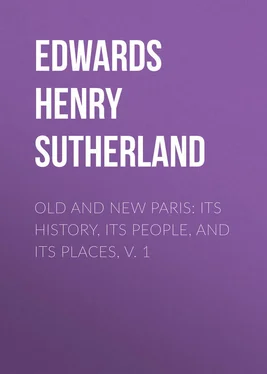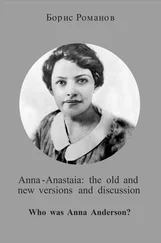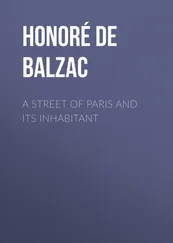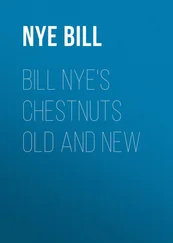Henry Edwards - Old and New Paris - Its History, Its People, and Its Places, v. 1
Здесь есть возможность читать онлайн «Henry Edwards - Old and New Paris - Its History, Its People, and Its Places, v. 1» — ознакомительный отрывок электронной книги совершенно бесплатно, а после прочтения отрывка купить полную версию. В некоторых случаях можно слушать аудио, скачать через торрент в формате fb2 и присутствует краткое содержание. Жанр: foreign_antique, foreign_prose, Путешествия и география, на английском языке. Описание произведения, (предисловие) а так же отзывы посетителей доступны на портале библиотеки ЛибКат.
- Название:Old and New Paris: Its History, Its People, and Its Places, v. 1
- Автор:
- Жанр:
- Год:неизвестен
- ISBN:нет данных
- Рейтинг книги:4 / 5. Голосов: 1
-
Избранное:Добавить в избранное
- Отзывы:
-
Ваша оценка:
- 80
- 1
- 2
- 3
- 4
- 5
Old and New Paris: Its History, Its People, and Its Places, v. 1: краткое содержание, описание и аннотация
Предлагаем к чтению аннотацию, описание, краткое содержание или предисловие (зависит от того, что написал сам автор книги «Old and New Paris: Its History, Its People, and Its Places, v. 1»). Если вы не нашли необходимую информацию о книге — напишите в комментариях, мы постараемся отыскать её.
Old and New Paris: Its History, Its People, and Its Places, v. 1 — читать онлайн ознакомительный отрывок
Ниже представлен текст книги, разбитый по страницам. Система сохранения места последней прочитанной страницы, позволяет с удобством читать онлайн бесплатно книгу «Old and New Paris: Its History, Its People, and Its Places, v. 1», без необходимости каждый раз заново искать на чём Вы остановились. Поставьте закладку, и сможете в любой момент перейти на страницу, на которой закончили чтение.
Интервал:
Закладка:
Opposite the house on the Boulevard du Temple associated with the outrage of Fieschi stood formerly the Café Turc, which offered to the generation of its day a shady retreat and varied amusements. Here the celebrated Jullien, better known in London than even in Paris, gave in the early years of Louis Philippe’s reign orchestral pieces of his own composition adorned with fireworks and emphasized by the booming of cannon. Little by little the Café Turc was to disappear; and now repeated alterations have reduced it to a beer-house, or brasserie .
The Café Turc was the first of the French cafés-concerts or music halls; for, like so many of our dramatic entertainments, the music hall is an adaptation from the French. The English music hall differs, however, from the French café-concert about as much as an English farce differs from a French vaudeville. The café-concert may be looked upon either as a café at which there is singing, or as a concert where refreshments are served between the pieces and “consumed” during the performance. But whether you enter the place for the sake of art or with the view of sustaining nature, it is equally necessary that you should “consume”; and that there may be no mistake on this point, a curtain is at some establishments let down from time to time with “ On est prié de renouveler sa consommation ,” and, at the side, in English, “One is prayed to renew his consumption,” inscribed on it. The renewal of one’s consumption is often a very costly proceeding.
To avoid being classed with theatres, and, as a legal consequence, taxed for the benefit of the poor, no charge for admission is made at the doors of the café-concert. But at those where such stars as the once celebrated Thérèse are engaged, the proprietor finds it necessary to attach extravagant prices to refreshments of the most ordinary kind, so that a bottle of lemonade may be quoted in the tariff at three francs, a cup of coffee at a franc and a half, and even the humble glass of water at fifty centimes. In England the music hall proprietor would be often glad to obtain a dramatic licence. He has no fear of the poor before his eyes, and would be only too happy to combine with the profits of musical publican those of the regular theatrical manager. Why he should or should not be so favoured has been argued at length before the magistrates and duly reported in the columns of the newspapers. The result has been that, as a rule, the London music hall proprietor does not give theatrical performances, though he often ventures upon duologues and sometimes risks a dramatic trio. The argument of London managers against music hall proprietors may thus concisely be stated: the manager cannot by the terms of his licence allow the audience to smoke and drink in presence of a dramatic performance; and, correlatively, the music hall proprietor ought not to be allowed to give dramatic performances while smoking and drinking are going on.
Paris is celebrated above all the capitals of Europe for its cafés; and the beverage which gives its name to these establishments seems to have been known earlier in France than in any other European country. Coffee was introduced into central Europe in 1683, the year of the battle of Vienna; and from the Austrian capital the use of coffee spread rapidly to all parts of Germany. The circumstances under which the Austrians first became acquainted with it were somewhat curious.
The Turks had brought with them to Vienna an imposing siege train. No European power possessed such formidable artillery; and their stone balls of sixty pounds each were not only the largest projectiles ever fired, but were regarded as the largest which by any possible means could be fired. According to the ingenious, but incorrect, view of one of Sobieski’s biographers (the Abbé Coyer), the amount of powder requisite for the discharge of a missile of greater weight would be so enormous as not to give time for the whole of it to become ignited before the ball left the cannon.
Kara Mustapha, the Turkish general, had also brought with him a number of archers; and when a letter from Sobieski to the Duke of Lorraine was intercepted by a Turkish patrol, the document was attached to an arrow and shot into the town, accompanied by a note in the Latin language to the effect that all further resistance was out of the question, and that the Vienna garrison had now nothing to do but accept its fate. The Turks, moreover, brought to Vienna an immense number of women, whose throats, when the Turkish army was forced to retire in headlong flight, they unscrupulously cut. The stone cannon balls of prodigious weight, the arrows, and the women could all be accounted for. But the Turks left behind them a large number of bags containing white berries, of which nothing could be made. Of these berries, however, after duly roasting and pounding them, an Austrian soldier, who had been a prisoner in Turkey, made coffee; and as he had distinguished himself during the battle, the Emperor granted him permission to open a shop in Vienna for the sale of the Turkish beverage which he had learned under such interesting circumstances to prepare.
According to another less authentic anecdote, the use of the mysterious white berries found among the stores of the defeated Turks was first pointed out by a Turkish soldier who had been working in the trenches before the besieged city, and had so fatigued himself by his ceaseless toil, that he fell asleep and slumbered on throughout the whole of the battle, undisturbed by the cavalry charges, the musketry fire, and the explosions of the artillery with its terrible sixty-pounders. When at last, after sleep had done its restorative work, the exhausted soldier woke up to find himself in the hands of the Christians, he was terribly alarmed. But his life was spared, and in return for this clemency on the part of his enemies he taught them how to make coffee.
Parisians, however, pride themselves on having known coffee fourteen years earlier than the Viennese. It is said, indeed, that an enterprising Levantine started a coffee-house at Paris in the very middle of the seventeenth century, and not later than the year 1650. The name of the stimulating beverage that he offered for sale was, as he wrote it, cahoue . But the unhappy man had not taken the necessary steps for getting his new importation spoken of beforehand in good society; and, no one knowing what to make of the strange liquor he wished to dispense – hot, black, and bitter – the founder of the first coffee-house or café became bankrupt.
The French, however, during, the seventeenth and eighteenth centuries were sworn friends of the Turks, whose power they played off on every occasion against that of the hated Empire. Vienna might, indeed, on two occasions have been captured, plundered, and burnt by the infidels for all France cared to do towards saving it. France, on her side, was viewed with favour by the Turks; and in 1669 an ambassador, Soliman Aga by name, was sent by the Porte on a mission to Louis XIV., at whose court he made known the virtues of the berry which long previously the Arabs had introduced throughout the East.
Properly presented, coffee met in Paris with a success which elsewhere it had failed to attain, and before long it became the rage in fashionable society. When it was at the height of its first popularity, however, Madame de Sévigné condemned it, saying that the taste for coffee, like the taste for Racine, would pass away. Racine, in spite of the beauty of his at once tender and epigrammatic lines, is not much read in the present day, and is scarcely ever acted. Coffee, on the other hand, is as popular now as in the days when Pope wrote his couplet on
“Coffee, which makes the politician wise,
And see through all things with his half-shut eyes.”
Интервал:
Закладка:
Похожие книги на «Old and New Paris: Its History, Its People, and Its Places, v. 1»
Представляем Вашему вниманию похожие книги на «Old and New Paris: Its History, Its People, and Its Places, v. 1» списком для выбора. Мы отобрали схожую по названию и смыслу литературу в надежде предоставить читателям больше вариантов отыскать новые, интересные, ещё непрочитанные произведения.
Обсуждение, отзывы о книге «Old and New Paris: Its History, Its People, and Its Places, v. 1» и просто собственные мнения читателей. Оставьте ваши комментарии, напишите, что Вы думаете о произведении, его смысле или главных героях. Укажите что конкретно понравилось, а что нет, и почему Вы так считаете.












